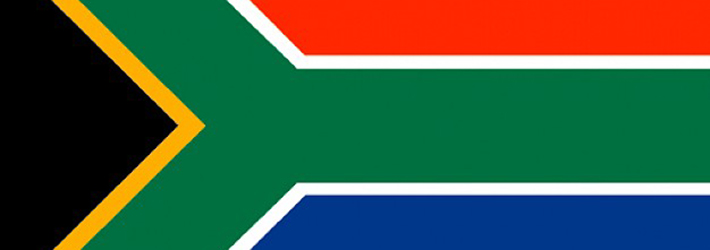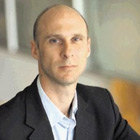sable blog post« Back to Blogs Listings
November 06, 2015

Africa at the Cutting Edge: How African Innovators are Quietly Changing America
Rowan Philp
In this AFKInsider piece, SABLE content editor Rowan Philp describes the in-built edge which Africa's innovators enjoy over western rivals.
In this first installment for a regular column, ROWAN PHILP – U.S. correspondent for South Africa’s Sunday Times, and Knight Science Journalism Fellow at MIT/Harvard – invites readers to enjoy a welcome culture shock: the discovery that Africans are, in fact, at the leading edge of U.S. high-tech innovation.
In the west, talk of “African innovation” summons images of feisty low-tech solutions to rural problems. And so we think of the life-saving Hippo water roller, (a device for carrying water more easily) or the charming tale of the boy who harnessed the wind – Malawian William Kamkwamba, and his junkyard windmill.
Perhaps there’s an additional sense that some young Africans are also innovating on American technology platforms, like Kenyan farmer Su Kahambu, with her stunningly clever iCow app. The strangely hidden reality, though, is that African innovators not only match their Western counterparts in pioneering major high-tech platforms, but are leading new industries the U.S.
PayPal, Youtube, SolarCity, Clickatell, Yola, epigenetic cancer therapy and the commercial space rockets now first in line to replace the Space Shuttle were all launched by African pioneers. And how many Americans, for instance, would guess that the cloud-computing revolution has been led by a Zimbabwean – Paul Maritz, the recent outgoing CEO of VMware?
Then there’s this: In January, the Silicon Valley Business Journal made a curious discovery about four of their first five annual CEO award winners. They noted: “Here’s something interesting about our Executive of the Year awards, something that hadn’t occurred to us at the time that these four executives were selected — they are all originally from (Africa).”
The same lack of recognition is true historically, with African inventions from the CT scanner to the automated pool cleaner to the “twisted-H” concrete mooring posts which protect most of the world’s harbors. For me, the anonymity of African innovators can be compared with the same obscurity assigned to breakthrough women scientists. Besides Marie Curie, can anyone name a famous female scientist in under five seconds? I couldn’t, just a few years ago. Not Rosalind Franklin, co-discoverer of DNA; not Ada Lovelace, the world’s first computer programmer; not Lise Meitner, co-discoverer of nuclear fission. Its fair to say it knocked my socks off to learn that all five of the scientists who discovered the key properties of stars – from what they’re made of, to how to measure their distance – were women I’d never heard of; four of whom were barred from using research telescopes on the basis of their gender. The credit, of course, went to men we’ve all heard of, like Edwin Hubble.
The sobering counter-point to the exciting reality of African ingenuity is this: value added manufacturing dropped from 12.8 percent of African gross domestic product in 2000 to 10.5 percent in 2008, according to U.N. data. More recent World Bank data record a similar slide through 2012 for Sub-Saharan Africa. The obvious conclusion is this: African innovators grossly overachieve in the diaspora, and underachieve within Africa; a problem of geography, rather than nationality.
According to Donovan Neale-May – CEO of the SABLE Accelerator, a U.S.-to-Africa business linkage company – the difference lies in access to capital and networks.
Take the case of two electric cars – Tesla, and the Joule – both created in a similar period by remarkably similar African innovators.
Unveiled to critical praise at the 2008 Paris Motor show, the five-seater Joule – Africa’s first zero-emissions car – not only met the European Union’s hyper-strict production standards, but could be charged for its 200 kilometer range from ordinary household power outlets. It was created by an engineer, Kobus Meiring, who had already developed the Rooivalk attack helicopter, as well as the world’s most powerful single optical telescope, the 10.5-meter Southern African Large Telescope (SALT).
In 2012, the Joule’s manufacturer, Cape Town-based Optimal Energy, halted production and abandoned the car, having failed to secure a financing partner. Meanwhile, Elon Musk – who grew up not far from Meiring – has built Tesla into the world’s marquee electric car brand. This month, Tesla’s market capitalization was reported at over $5 billion. By contrast, Optimal Energy raised $5 million from South Africa’s Department of Science and Technology with similar modest support from other government innovation agencies.
Musk – based in Silicon Valley – had raised $187 million in private financing by 2009, and secured $465 million in interest-bearing loans from the U.S. Department of Energy.
Meiring’s Rooivalk – a match, technologically, for the Apache helicopter, and far cheaper – flopped on the international market just as hard.
Still, Meiring and Musk both represent a fundamental innovation principle growing in Africa: don’t re-invent the wheel; just make the wheel a lot cheaper – and make the whole wheel yourself without sub-contractors. It’s this second part – which doomed the Rooivalk – which African innovators who remain in Africa may need to rethink.
A second African principle for commercial success – exploiting pre-existing advantages, which are unavailable to western competitors – will be the subject of a future column.
But some innovators suggest that Africa presents advantages for innovation itself.
In a recent interview, Musk told me that his upbringing in Africa provided him with the impetus to learn and experiment which he would not have had in the U.S. He said local TV was “so bad” that, as a teenager, he was forced to read books in his spare time – first science fiction, and eventually engineering textbooks. Tellingly, he also noted that he was forced to build his own radios and model rockets, because toys and build-it kits on African store shelves were so limited.
The implication is striking: that Africa, now offers the same do-it-yourself imperative for curious young entrepreneurs that fueled America’s innovation boom in the 1950s.
Meanwhile, Professor Peter Jones – director of the Norris Comprehensive Cancer Center in California – told me that his landmark discovery of epigenetic cancer therapy could probably only have happened in Africa. Pursuing his “with hindsight, quite silly” effort to see if he could trigger cancer in healthy human cells using cancer drugs, Jones nevertheless won a small grant from an African cancer association. The experiment was a dismal failure. Instead, Jones found, to his astonishment, that the basic “fibroblast” cell which he’d treated with an obscure drug, known as “aza-c” began beating like a heart on his microscope slide. The drug, he said, had accidentally toggled “epigenes” on the cell which simply instructed it to become a muscle cell. The discovery has led to an entire new field of research and therapy in the U.S., with dramatic increases in survival rates among patients with blood cancers.
And then there’s the more romantic edge which African innovators enjoy: that no one tells them not to bother; that this or that product has already been made; that all the tunes have already been written. No one in Africa blocks innovation through all-powerful congressional lobbying firms. No one heads off back-yard experiments through British-style health and safety regulations or fear of U.S-style litigation. And no one cautions against flawed research which will lead to mistakes; the kind of mistakes which have fueled countless breakthrough discoveries.
African innovators have a clear lane to the future, if only they can win a ticket to the track.

Rowan Philp is a multiple award-winning writer, news editor, journalism coach and foreign correspondent, who has covered conflict, business, public health, science, news events and foreign policy from 27 countries. Previously, he was the Chief Reporter for Africa's leading newspaper - the Sunday Times (South Africa) - for most of the past decade; a period book-ended by fellowship stints at the Washington Post and at Harvard/ MIT.

